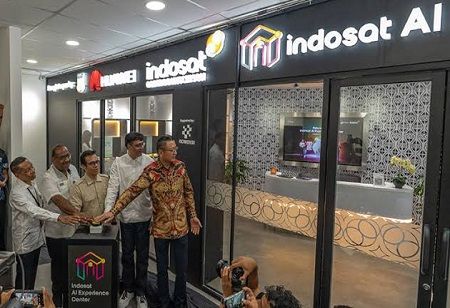- Indosat Ooredoo Hutchison launches ‘Indonesia AI Day for Higher Education’ to integrate AI into universities.
- Initiative aims to bridge the AI and STEM skills gap among Indonesia’s graduates and align academia with industry needs.
- Collaboration includes local and global partnerships, AI-powered programs, and hands-on research opportunities in AI applications.
Indosat Ooredoo Hutchison has rolled out an ambitious program to embed artificial intelligence deeper into Indonesian tertiary education. At the heart of this lays its ‘Indonesia AI Day for Higher Education’, which assembles local universities, international academic institutions, and technology players in driving a digital-first transformation in universities.
The need for such a push is compelling. According to a report published in 2024, out of Indonesia's 11 million university graduates, less than 25% stemmed from AI-related or STEM fields while the rest graduated in humanities, business, medicine, and traditional engineering. More significantly, less than one thousand students annually graduate from AI-specific programs. Indosat's initiative thus seeks to help bridge that gap by providing future graduates with the set of skills they will be needing in a rapidly digitalizing world.
Indosat tries to sharpen the alignment between academia and industry through this program. The AI Day forum it held created a space where knowledge can be shared, debated, and collaborated upon by researchers, students, and business leaders alike. In this way, Indosat tries to embed AI not only in theory but also in real academic research and classroom practices.
The government is fully on board. Representatives from the Ministry of Higher Education, Science, and Technology have praised the collaboration, highlighting how partnerships with industry are vital in building an education system that creates impact and solves real social challenges while contributing toward Indonesia's long-term vision to become a globally competitive talent hub by 2045.
The greater ambition of Indosat is clear: scale digital transformation via AI-enabled learning. It is pushing universities to rethink curricula so that they reflect the real needs faced in industry, especially in AI, data science, and digital innovation. This is not just about introducing new courses but reimagining how learning and research works, making them more responsive toward applications within the industry and societal impact.
Also Read: Digital Education Week 2025 Launched in Hong Kong to Champion EdTech
At the same time, Indosat is also expanding its collaborative footprint outside national boundaries. It has inked a memorandum of understanding with Indonesia Technology Alliance (ITA) and Tsinghua University of China to establish an AI Application Cooperation Center that will be operational soon. Thus, it will emerge as a hub for creating locally relevant AI solutions in education, healthcare, and agriculture, among other sectors, while developing Indonesian talent through exposure to global expertise.
The company is directly collaborating with Indonesian universities on the home front. For instance, Indosat collaborates with Universitas Jenderal Soedirman to train students in AI through its IDCamp 2025 program, including two new tracks: AI Development and AI Integration. These new tracks are designed to develop students' technical AI skills and enable them to apply AI in practical contexts.
This academic initiative dovetails with Indosat's larger technological strategy. The company is building an AI-powered radio access network - AI-RAN - in cooperation with Nokia and Nvidia, the first of its kind in Southeast Asia. Such a network will provide hands-on opportunities for university researchers and students to experiment with various aspects of AI applications, particularly in the field of network optimization, energy efficiency, and next-generation connectivity.
Through these initiatives, Indosat is issuing a clear statement: AI is not just the future; it's a present-day priority for Indonesia. It aspires to forge a new generation of digitally fluent graduates who are prepared to compete not only within Indonesia but also globally by bridging academia and industry, creating global partnerships, and making further investments in infrastructure.

